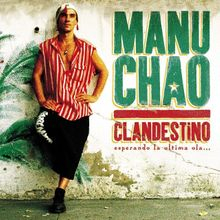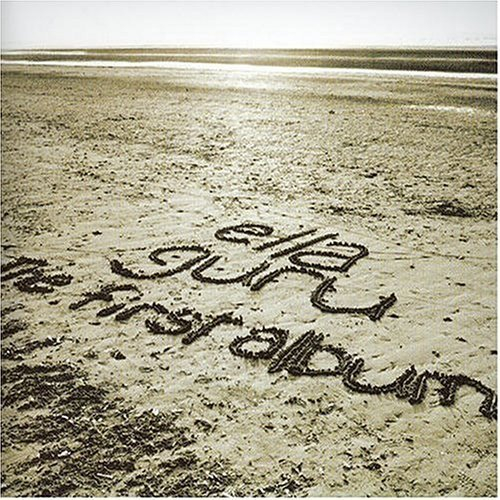I have a very vivid memory of a French girl singing along to every word of this album while getting ready for a fiesta on my Erasmus exchange. In the final year of university, it became the backing music for a lo-fi online BMX game that all my mates were playing. When I decided I wanted to be able to play and sing a song in Spanish, I went straight to this album.
I love the way one track morphs into the next, all held together by a magical pinging sound. It seamlessly moves between languages, too. Within four tracks, English, Spanish and French have already featured and there’s even a little basic Portuguese towards the end in A Minha Galeria. But it is doing the album a disservice if you consider the album in its individual parts rather than as a glorious whole.
So what is this album? Mostly recorded on a small laptop whilst rambling lost through West Africa, Central and South America after splitting from the wildly successful Mano Negra and his girlfriend, it evokes the sound and beat of the street. Politics, poverty, revolution, heartbreak, philosophy, immigration, wandering and climate change all come together to form a musical manifesto of everything he believes in and represents.
Lines, hooks and melodies ebb in and out only to return later on other tracks mixed with samples of political speeches, radio reports and even his answering machine. It’s a swirling stream of consciousness.
A few of the highlights are the “motor” or “curse” that keeps him moving on with no particular destination, deciding that in this world “everything is a lie (that’s the truth)” and his being reduced to tears at the way we are killing “Pachamama”.
In Tijuana “there’s no border with “The Coyote”” and near the end he laments “Why do people fall in love? There are always problems”. “La Despedida” is a long and detailed monologue to self about how he is over his break-up, but at the end he stumbles back into “I’ll always be waiting for you, my love”. Sometimes it’s never really over.
The final track concludes on a Juan Rulfo like note. On a dusty road somewhere on the Mexican border, “the wind comes, the wind departs”. Juxtaposed with the line “hunger (hambre) comes, man (hombre) departs”, his final question is “When will man return?” It’s a warning that the world can survive a lot more than humankind can.
This is so much more than just an album for me and being able to understand everything on it is a real pay-off for the years I’ve spent studying languages. But even if you can’t understand it lyrically, it’s a treat musically. Just remember that the album is so, so much deeper than the only song in English on it, “King of the Bongo”.



